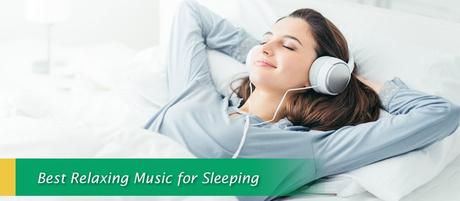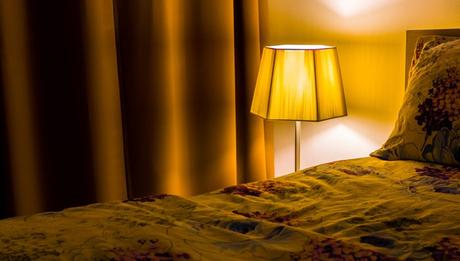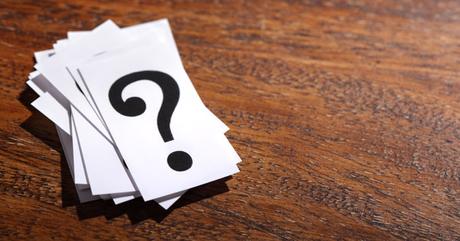The best relaxing music for sleeping is played at a tempo similar to your heart rate when in bed. This relates to a pulse rate of 60 - 80 beats per minute. That is why many people fall asleep when listening to such relaxing music in the evening. You can use this information if you find it difficult to sleep at night. There are many forms of music to help you sleep available online - you only have to find it. YouTube and Spotify are good sources of such soothing music.

The relaxing properties of certain types of music have been known for many years, yet most of those who find sleep difficult to come by have never tried it. They may spend money on white noise machines, birdsong recordings or soothing waves breaking on the shore. Sure, these sounds can work, but there are many different forms of relaxing music online that will help you sleep.
How Relaxing Music for Sleeping Works
Soothing music certainly helps people drift into sleep. Many have tried it and can attest to how effective music can be. Not only can it lower your heart rate, but it can also lead you to breathe more slowly. Both of these effects are known to help you fall asleep. Many studies have been carried out on the effect of music on sleep and anxiety levels. The general consensus is that the right kinds of music that can help you relax and sleep can also reduce stress and anxiety.
By synchronizing your heartbeat with peaceful-sounding music, you can slowly trick your heart in reducing its rate, which in turn reduces your blood pressure and anxiety levels. Ultimately, this can send you off to a deep, relaxing sleep. Here's what the British Academy of Sound Therapy did to help use this information to help people with sleep difficulties.
Marconi Union and the British Academy of Sound Therapy
Marconi Union is an English trio (Richard Talbot, Jamie Crossley, and Duncan Meadows) that along with the British Academy of Sound Therapy produced an instrumental track that lulled people into a relaxed state by means of sounds that progressively lowered the heart rate from 60 beats/minute to 50 beats/minute. The Academy is devoted to using sound to improve well-being and health.
The track they produced was WeightlessWhen you click on the link (Ctrl + Click) and listen to the track you can hear the beat steadily slow down as it moves along. Many people who use music to help themselves sleep can attest to the effectiveness of certain types of music. Not only music for sleeping, but also for relaxing you and reducing stress levels. According to Inc.com, Weightless was found to reduce stress levels by 65%.
Here are nine more tracks of music for sleeping.
These are presented in no specific order because each individual can be affected in different ways from each other. Some of these tracks will work better for you than for others. Not everyone responds to such music in the same way, and it is best to try them all and find the type that suits you best. This list is by no means comprehensive, and you can find a lot more on YouTube as will be explained later.
How Does Music Help You Sleep Better?
In spite of several studies, science cannot provide a definitive explanation of why certain types of music can help you sleep better. Music for sleeping works - that much is known! However, why it works has yet to be established. Weightless and others appear to tune into your natural rhythms: breathing, heart rate and so on. In doing so, they may promote the production of certain hormones that promote or control relaxation and sleep. These theories, however, are precisely that: theories. None have yet been proved.
No Universally Relaxing Tunes
What is evident is that a tune or song that relaxes one person may not relax another. There appears to be no universally relaxing tune - or music genre! Weightless and Watermark help relax many people and help them to sleep, but there are just as many, if not more, that remain unaffected. Others may find that The Boxer, written by Paul Simon, helps them sleep quicker than Weightless and this may be due to the fact that they like Simon and Garfunkel, or perhaps prefer lyrics to instrumentals.
Most people would associate classical music with sleeping. They may believe it to be less raucous, more melodic and more soothing than country or popular music. However, many classics are fast and furious, such The Ride of the Valkyries in the third act of Wagner's Die Walküre ( The Valkyries). This piece is anything but peaceful and soothing. On the contrary, it's more likely to awaken the dead than send you to sleep!
Finding Soothing Music for Helping You Sleep
Rather than seek out specific genres of music to help you sleep, you should carry out a search engine search for 'soothing music for sleeping' or 'best relaxing music for sleeping'. You will find a lot of ideas and suggestions, although not much in the way of explanations of why certain types of music will help you sleep.
Try out this track on YouTube: It's a 3-hour instrumental composition of relaxing music for sleeping. If you listen to this each evening you will find it much easier to fall asleep. You might even find that it trains your body to associate bed and a certain time of night with sleep, and enable you to sleep without playing the music! If you find sleep hard to come by at night, then you should definitely try listening to this. Keep the volume low, but not so low you can't hear it! Chill out, and let the music take you where it takes you.
The Importance of Comfortable Bedding
There are other things you can do to help you sleep. Check out your mattress, and if necessary buy a new one. Go for something comfortable that keeps you cool at night - not too soft and not too hard. Make sure you have a comfortable pillow that absorbs the heat from your head and face as you sleep. Once you have the bed sorted out, make sure your bedroom is fitted with dimmer lights so you can turn down the light before you decide to go asleep. If you can't sleep in the dark, then put the dimmer lights on a timer so they switch off at the same time each night.

Get into the habit of listening to appropriate music each night once the lights have been dimmed - or switched off. As suggested above, studies have shown that a tempo close to that of your heartbeat works well, particularly if it slows down slightly over the piece. Your mind and body will become used to associating such things with sleep. Dim lighting, a comfortable bed and relaxing music for sleeping. You should then find it much easier to get to sleep at night.
Your heart rate will slow down with the appropriate peaceful music, your blood pressure will drop and your breathing may become shallower. Each of these is a precursor to sleep. This is fundamentally what happens to babies when you sing them a lullaby - it's a natural thing no matter what age you are.
Frequently Asked Questions
Here are some questions we are often asked by people who find it difficult to sleep at night.

1. How long does it take for soothing music to get me to sleep?
It varies with the person and the music. Soothing music relaxes you faster than you could get into a relaxed, sleepy state without it. That's what it does. If you are worried about something or are excited by something that is to happen tomorrow, music may not have much effect on your mood. You have to want to sleep first and music will help you. Try to clear your mind and think about nothing, or watch a spider walk across the ceiling. You will soon fall asleep - so long as the spider is not right above you!
2. How does music help a baby to sleep?
Babies relax when they hear their mother's voice. This is particularly true when that voice is soothing, such as when singing a lullaby. It's exactly the same thing with you when you hear a soothing tune. You feel more relaxed and sleep comes easier.
3. What if I prefer different tunes to the ones in your playlist? Where can I find more?
YouTube! Carry out a search for ' best relaxing music for sleeping' and you will likely find a few listings on YouTube. You can carry out the search on Google (who owns YouTube) or use the YouTube search window.
4. How does music for sleep affect your brain?
Any tune or melody can give rise to emotions which originate in your brain. It doesn't have any lasting effect on your brain, but it can give rise to the production of certain hormones, such as melatonin, that help promote sleep. Music can also soothe away fears and worries that may be keeping you awake.
5. OK, music helps you sleep, but what about the quality of that sleep. Is it good, and does it refresh you any more than if you slept without music?
A study on 94 students aged between 19 and 28 years was published in the Journal of Advanced Nursing in 2008. This demonstrated that relaxing classical music was an 'effective intervention in reducing sleeping problems' and that nurses could use appropriate music to treat insomnia.
A 2012 study on the effect of relaxation music on 15 traumatized refugees showed that soothing music improved the quality of their sleep and their well-being. This group had been played relaxing music via a music player nestled in an ergonomic pillow. However, there was no change in a control group given only the ergonomic pillow but no music.
Best Relaxing Music for Sleeping: Conclusion
Music is not only the food of love, and not only soothes the savage breast, but it also helps you to sleep. Experts believe that the best relaxing music for sleeping has a tempo very close to that of the heart rate. Calming music can slow your heart rate down just as frenetic music can speed it up. It can relax you and send you to sleep, but you must first choose the music that has this effect upon you.
Our ten suggestions for 'best relaxing music for sleeping' provide a good selection of soothing music to help you sleep. Different people will react differently to each of these tracks, but you should find something to suit you. If not, there is plenty more to be found online. Between them, YouTube and Spotify offer many different types of relaxing musing for sleeping. Soothing music is not difficult to find, and it really is irrelevant how it works - just be thankful that it does work and that there can be a solution to your insomnia or difficulty in sleeping.

